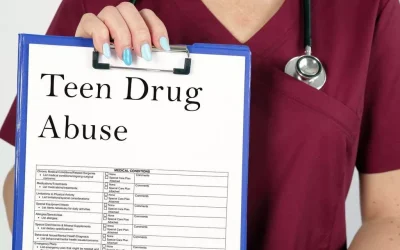Content
The longer someone is able to stay drug- and alcohol-free, the more likely they’ll have the strength to ignore their overwhelming cravings when confronted with the opportunity to use again. Living with a child who relapsed can necessitate outside help and tough consequences. Do this rationally and discuss consequences with your teen.

It gives them accountability in a setting where recovery is the norm, and they are surrounded by people in the same predicament they are. Sober living also ensures that if they use or drink, they will have consequences instead of continuing down the path to self-destruction. Some sober living homes also have an IOP component with it, meaning your child would be continuing treatment while staying in a sober environment and have some level of supervision.
When should I see my healthcare provider?
They also often come with additional mental health, medical, recovery or educational services that help people get accustomed to their new lives. Sober living is just like it sounds, a place to stay where you’ll have a supportive community sober house and can start your new life free from alcohol or other drugs. Residents in sober-living homes commit to abstaining from substance use while participating in outpatient programming or after completing inpatient drug rehab.
The recovery process will be a series of trials and tribulations that your adult child needs to navigate by his or her self. Of course, they will have guidance and support, but your adult child no longer needs someone to step in and take care of things for them. Recovery requires making some mistakes, the degree of those mistakes and their impact is up to your adult child in recovery. For family members, restructuring the nature of your relationship with the recovering addict or alcoholic is one of the most challenging things to work on. Royal Life Centers offers services for family members to ensure this transition is successful, for the best interest of both the recovering addict and their families.
Anxiety in Children and Teens
However, putting in place accountability measures may help with repairing and rebuilding trust. With all the focus on your partner’s recovery, you may ask, silently or aloud, “What about me? ” Now that things are less chaotic, less overwhelming, you may be surprised at the feelings that start bubbling up within you. If someone you love is working on sobriety, here are several ways to make recovery easier on both of you. Reach out to us today by filling out the contact form below with your name, contact information, and a brief message about your recovery journey.

Substance use disorder creates an enormous amount of stress for a family, and there is no guarantee of the outcome of recovery without effort and work. Other times they may be grateful and more like the person you used to know — savor those moments! Be sure to point out any and all positives, and try your best to offer hope and compassion. You’ll want to establish some boundaries and rules with your child.
Staying Social When You Quit Drinking
FINALLY, remember that you do not have to go through this alone. There are innumerable 12-step support groups and recovery programs for the loved ones of alcoholics/addicts. The more you use their services, the more you will discover that sharing your own experiences will reduce the pain and distress that you feel. As your child explores living without drugs and alcohol, expect a change in your relationship with your son or daughter. Part of recovery is learning new coping behaviors that don’t involve using.
What are 4 tips for saying no to drugs?
- Make an excuse.
- Use a little humor.
- Change the subject.
- Offer to be the designated driver.
- Act like you're too busy.
- Explain the dangers of drugs and alcohol.
- Be honest.
- Keep saying no.
The more ACEs a child experiences, the more at risk they are for developing SUD at some point in their life. Substances send massive surges of dopamine through your brain, too. Establish open lines of communication with one another and come up with a plan of action. This will set you both up for success and avoid pain and conflict down the road.
Don’t make a habit of lending them money.
Alcoholism and drug addiction are a problem in and of itself, but there is also a problem underlying the substance dependence. Without addressing the underlying issues and simply stopping substance use, it is like putting a band aid on severed limb. Oftentimes there are unaddressed or hidden mental health concerns such as anxiety, depression, mania, personality disorders, or post-traumatic stress. If an individual receives proper alcohol and drug addiction treatment, therapists, psychiatrists and other addiction specialists will work with the patient to address underlying mental health issues. As with alcohol and drug addiction, mental health issues often require long-term attention to sustain recovery. If mental health issues go unaddressed, or if an individual does not know how to properly cope, they can trigger an alcohol or drug relapse.




























































